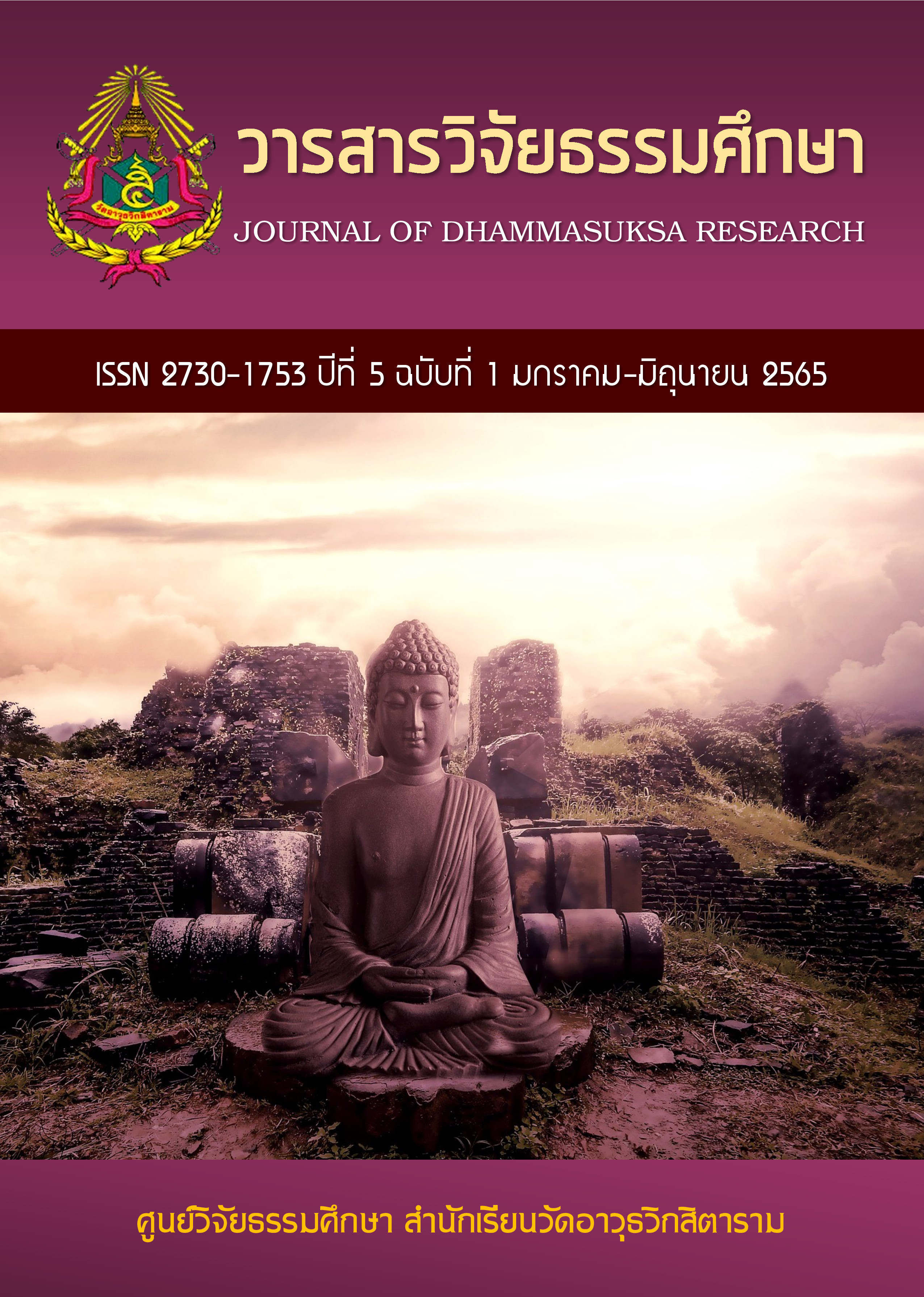Effects of the Way of Life and Behavior of Monks of Wat Pa on People Life Quality
คำสำคัญ:
life of monks, forest temple, monastic observances, quality of lifeบทคัดย่อ
The objectives of this research are to study the patterns of conservation of Buddhist traditions and practices of monks of Wat Pa (the forest temple) and to study the effects of the monks’ behavior on the quality of life of the people living in the communities surrounding Wat Pa. It is a qualitative research based on a documentary and fieldwork study. The basic data was collected by studying circumstances, the way of life of monks, duties of monks, principles of conduct, student’s duty towards a teacher, student’s duty towards a preceptor, including important daily monastic observances as practiced in various temples that give importance to the meditation practice, and the effects of the monks’ behavior on the quality of life of the people living in the communities surrounding Wat Pa through the researchers’ observation. Other methods of data collection were also adopted such as an in-depth interview with the main information providers and focus group discussion. Data analysis was to summarize, interpret, and then present in a descriptive form.
The results of the research revealed that the monks of Wat Pa strictly adhered to the discipline of the Sangha with their practice inherited from the teachers. The practice of any of Thirteenfold Austere Practice (Dhutaṅga) was at individual monk’s choice to seriously refine his own mind from defilements. The practice of monastic observances in accordance with the inherited patterns based on the intrinsic nature of a person (Carita) of the individual monk led him to find out the absolute truth. The effects of the monks’ behavior on the quality of life of the people were divided into three aspects, namely physical aspects in terms of good, strong, refreshed physical health because of performing a routine; mental aspects in terms of mental health with a bright, pure, delighted mind because of the joy of having a role model for peace and happiness and also staying in control of one own emotion when in more developed practice; intellectual aspect in terms of clear intelligence, clear vision of problems, and immediate solution to problems. With the depth of wisdom, one can see the conventional truth and eventually the ultimate truth.
เอกสารอ้างอิง
Prachuap Saen Klang. (1988). The Role of Vipassanathura Buddhist Monks in North Isaan Society: A Case Study of Phra Ajarn Mun Bhuridatto, 1893-1986. Master's thesis. Education, Thai Khadi Studies-Humanities, Graduate School, Mahasarakham University.
Phatchawat Suksen, Banpot Kathaisong, Wichian Chabutbuntharik, Somkid Sukjit, Issaraphong Kraisin, Phrakhupsarabandit, Phrapaladkitti Yuttitharo. (2020). Teachings and Guidelines of Meditation Practice of Luang Pu Mun Bhuridatto. Journal of Wanamtongsaraek, Buddhasatthaparithat, 7th Year, 2nd Issue (2020): July – December: 60.
Banpot Khathaisong and Phra Mahaphiratkorn Amsumalee. (2015). An Analytical Study of Ethics in the Meditation Practice of Luang Pu Mun Bhuridatto. Buriram Sangha College. Mahachulalongkornrajavidyalaya University.
Student Group. Upalamanee: Biography and Silajarawat of Luang Por Cha Subhaddo. 1st Dhamma Heritage, Volume 1, reviewed by the Dhamma Heritage Committee on 20 November 2001. ISBN: 9470056598.

ดาวน์โหลด
เผยแพร่แล้ว
รูปแบบการอ้างอิง
ฉบับ
ประเภทบทความ
สัญญาอนุญาต

อนุญาตภายใต้เงื่อนไข Creative Commons Attribution-NonCommercial-NoDerivatives 4.0 International License.


